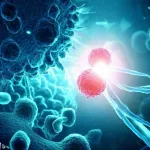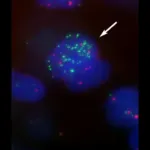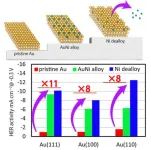(Press-News.org) A Kaiser Permanente study provides new information that may help oncologists answer one of the most common questions they hear from breast cancer survivors: Is it safe to drink alcohol?
The new study, published August 9 in Cancer, is the largest prospective study to look at short-term alcohol use after breast cancer. The findings suggest drinking alcohol is not associated with an increased risk of breast cancer recurrence or dying from the disease.
“We know that women who drink alcohol are at increased risk of developing breast cancer and that the risk increases as alcohol use increases,” said lead author Marilyn Kwan, PhD, a research scientist with the Kaiser Permanente Northern California Division of Research. “For this reason, we thought that drinking alcohol after a breast cancer diagnosis could increase the risk of a cancer recurrence. But our study found that, overall, drinking alcohol after a breast cancer diagnosis does not impact a patient’s prognosis.”
Previous studies that looked at alcohol use and breast cancer have had conflicting results. Moreover, most were focused on alcohol use before a breast cancer diagnosis. As a result, there are currently no guidelines for breast cancer survivors on alcohol use. Guidelines for reducing breast cancer risk recommend that women have no more than one alcoholic drink per day.
For their analysis, the research team used data from the Pathways Study, a prospective study of more than 4,500 women diagnosed with invasive breast cancer from 2005 to 2013 at Kaiser Permanente Northern California. It is one of the largest U.S. studies to follow breast cancer survivors to track the relationship between lifestyle changes and outcomes.
“After a breast cancer diagnosis, patients are often focused on making lifestyle changes that could help them live longer,” said senior author Lawrence H. Kushi, ScD, a research scientist at the Division of Research who co-leads the Pathways Study. “Many breast cancer patients have questions about whether drinking alcoholic beverages could lead to breast cancer recurrence. The aim of our study is to provide breast cancer survivors and their physicians with information that can help them make decisions that will improve both their quantity and quality of life.”
The new study included more than 3,600 women who had completed a questionnaire about their alcohol use when they entered the Pathways Study at the time of their diagnosis and again 6 months later. Over the next 11 years, 524 women had a breast cancer recurrence and 834 women in the study died — 369 from breast cancer, 314 from cardiovascular disease, and 151 from other health problems.
The researchers hope their findings will help clinicians provide accurate information to breast cancer survivors who want to know what lifestyle changes they can make to improve their outcomes.
END
Drinking alcohol not likely to increase risk of a breast cancer recurrence
A Kaiser Permanente study provides new information that may help oncologists answer one of the most common questions they get from breast cancer survivors: Is it safe to drink alcohol?
2023-08-09
ELSE PRESS RELEASES FROM THIS DATE:
New machine-learning method may aid personalized cancer therapy
2023-08-09
FOR IMMEDIATE RELEASE
Deep-learning technology developed by a team of Johns Hopkins engineers and cancer researchers can accurately predict cancer-related protein fragments that may trigger an immune system response. If validated in clinical trials, the technology could help scientists overcome a major hurdle to developing personalized immunotherapies and vaccines.
In a study published July 20 in the journal Nature Machine Intelligence, investigators from Johns Hopkins Biomedical Engineering, the Johns Hopkins Institute for Computational Medicine, the Johns Hopkins Kimmel Cancer Center and the Bloomberg~Kimmel Institute for Cancer Immunotherapy show that ...
Childhood cancer: "New" immune system responds better to therapy
2023-08-09
(Vienna, 9.8.2023) Scientists at St. Anna Children's Cancer Research Institute and the Eberhard Karls University of Tübingen have shown that immunotherapy after stem cell transplantation effectively combats certain nerve tumors in children. Crucially, stem cells from a parent provide children with a new immune system that responds much better to immunotherapies. These results of an early clinical trial were published in the prestigious Journal of Clinical Oncology.
Childhood tumors of the nervous system, known as neuroblastomas, are associated with an unfavorable prognosis ...
2024 HFSP Nakasone Award nominations are open
2023-08-09
The Human Frontier Science Program (HFSP) has published the new call for the 2024 HFSP Nakasone Award. Until September 30th, the global scientific community is invited to submit their nominations for this prestigious award.
The HFSP Nakasone Award recognizes groundbreaking contributions and breakthrough discoveries in the life sciences. The award celebrates exceptional achievements in scientific excellence, particularly those that have propelled the boundaries of biological knowledge forward.
In its 13th ...
CAREER Award: Fixing AI’s blind spot in image analysis
2023-08-09
For all the astonishing things artificial intelligence can do, it has a particular blind spot that one University of Virginia researcher seeks to remedy.
It can’t recognize all shapes.
“Current machine-learning models lack the capability to analyze and quantify the shape of objects presented in images with complex structures and large variations, especially in the context of medical imaging,” said Miaomiao Zhang, an assistant professor in the UVA School of Engineering and Applied Science.
The models are biased toward “seeing” image textures and have limited ability ...
The protein protectors of fertility
2023-08-09
Osaka, Japan – You’re likely familiar with RNA, the molecule that plays an important role in protein production and gene expression control. Perhaps you’re less familiar, however, with PIWI-interacting RNA (piRNA), a special type of RNA that protects the genome from mutations. Now, researchers in Japan have shed light on how these critical molecules are formed by the dynamics of several associated proteins in the germline of the fruit fly, Drosophila melanogaster.
In a new study published in the Journal of Cell Biology, researchers from Osaka University have clarified how the proteins Tejas (Tej), Vasa (Vas), and Spindle-E ...
AuNi alloy on Au electrodes for hydrogen evolution reaction: towards a cleaner tomorrow
2023-08-09
In recent years, hydrogen gas has gained momentum as the fuel for a clean and green future. This carbon-neutral fuel source releases huge amounts of energy via combustion in the presence of oxygen with water vapor as the by-product. One of the most popular methods of hydrogen production is the splitting of water into hydrogen and oxygen using electricity.
An electrochemical cell is used to split water, and the hydrogen gas gets released at the negatively charged electrode in hydrogen evolution reaction (HER). Catalysts are used to lower the ...
Sugars in breastmilk could help treat infections, prevent preterm births
2023-08-09
Breastfeeding has long been used as a method to help keep newborns healthy and protected against a variety of diseases. But certain sugars naturally found in breastmilk could also help prevent infections before a baby arrives. Researchers reporting in ACS Central Science have found that these sugars can stop a common prenatal infection in human tissues and pregnant mice. This could someday help avoid preterm births or complications without the need for additional antibiotics.
One of the most common bacteria that can affect pregnancies is Group B streptococcus (GBS). If left untreated, ...
Human scent receptors could help ‘sniff out’ nerve gases in new sensor
2023-08-09
By some estimates, the human nose can detect up to a trillion different smells with its hundreds of scent receptors. But even just catching a quick whiff of certain chemicals known as nerve agents can be lethal, even in tiny amounts. Researchers now reporting in ACS Sensors have developed a sensitive and selective nerve gas sensor using these human scent receptors. It reliably detected a substitute for deadly sarin gas in simulated tests.
Nerve gases are often very potent, requiring highly sensitive sensors to detect them ...
Microplastics found in human heart tissues, both before and after surgical procedures
2023-08-09
Everywhere scientists look for microplastics, they’ve found them — food, water, air and some parts of the human body. But examinations of our innermost organs that aren’t directly exposed to the environment are still limited. Now, in a pilot study of people who underwent heart surgery, researchers in ACS’ Environmental Science & Technology report that they have found microplastics in many heart tissues. They also report evidence suggesting that microplastics were unexpectedly introduced during the procedures.
Microplastics ...
Electric car revolution puts Native communities at risk
2023-08-09
Conditions are ripe for an accelerated transition to electric vehicle (EV) use in the United States. The Biden-Harris administration has set a target that 50 percent of newly purchased cars in 2030 be electric. In addition, the Inflation Reduction Act of 2022 provides significant tax incentives for purchasing electric vehicles and for companies that produce them.
And that is good news for environmental justice (EJ), says Lisa Benjamin, author of a paper called “EVs as EJ?” forthcoming in Harvard Environment Law Review. Benjamin, associate professor of law at Lewis & Clark Law School, details all of the positive impacts of EVs ...
LAST 30 PRESS RELEASES:
Weight-loss wonder pills prompt scrutiny of key ingredient
Nonprofit leader Diane Dodge to receive 2026 Penn Nursing Renfield Foundation Award for Global Women’s Health
Maternal smoking during pregnancy may be linked to higher blood pressure in children, NIH study finds
New Lund model aims to shorten the path to life-saving cell and gene therapies
Researchers create ultra-stretchable, liquid-repellent materials via laser ablation
Combining AI with OCT shows potential for detecting lipid-rich plaques in coronary arteries
SeaCast revolutionizes Mediterranean Sea forecasting with AI-powered speed and accuracy
JMIR Publications’ JMIR Bioinformatics and Biotechnology invites submissions on Bridging Data, AI, and Innovation to Transform Health
Honey bees navigate more precisely than previously thought
Air pollution may directly contribute to Alzheimer’s disease
Study finds early imaging after pediatric UTIs may do more harm than good
UC San Diego Health joins national research for maternal-fetal care
New biomarker predicts chemotherapy response in triple-negative breast cancer
Treatment algorithms featured in Brain Trauma Foundation’s update of guidelines for care of patients with penetrating traumatic brain injury
Over 40% of musicians experience tinnitus; hearing loss and hyperacusis also significantly elevated
Artificial intelligence predicts colorectal cancer risk in ulcerative colitis patients
Mayo Clinic installs first magnetic nanoparticle hyperthermia system for cancer research in the US
Calibr-Skaggs and Kainomyx launch collaboration to pioneer novel malaria treatments
JAX-NYSCF Collaborative and GSK announce collaboration to advance translational models for neurodegenerative disease research
Classifying pediatric brain tumors by liquid biopsy using artificial intelligence
Insilico Medicine initiates AI driven collaboration with leading global cancer center to identify novel targets for gastroesophageal cancers
Immunotherapy plus chemotherapy before surgery shows promise for pancreatic cancer
A “smart fluid” you can reconfigure with temperature
New research suggests myopia is driven by how we use our eyes indoors
Scientists develop first-of-its-kind antibody to block Epstein Barr virus
With the right prompts, AI chatbots analyze big data accurately
Leisure-time physical activity and cancer mortality among cancer survivors
Chronic kidney disease severity and risk of cognitive impairment
Research highlights from the first Multidisciplinary Radiopharmaceutical Therapy Symposium
New guidelines from NCCN detail fundamental differences in cancer in children compared to adults
[Press-News.org] Drinking alcohol not likely to increase risk of a breast cancer recurrenceA Kaiser Permanente study provides new information that may help oncologists answer one of the most common questions they get from breast cancer survivors: Is it safe to drink alcohol?




